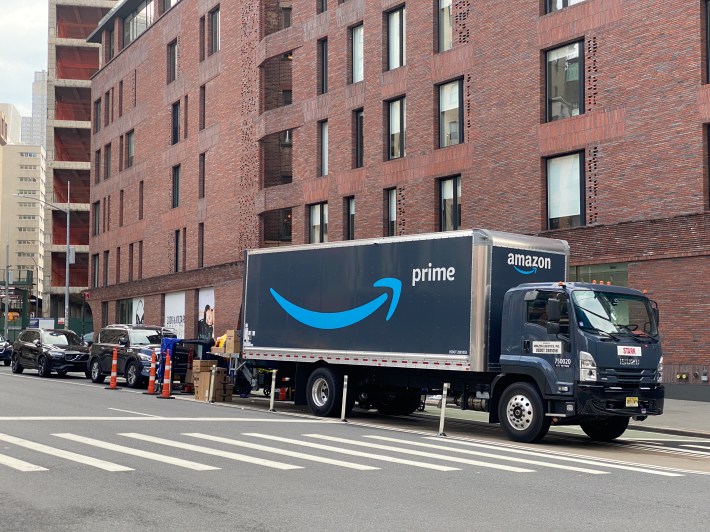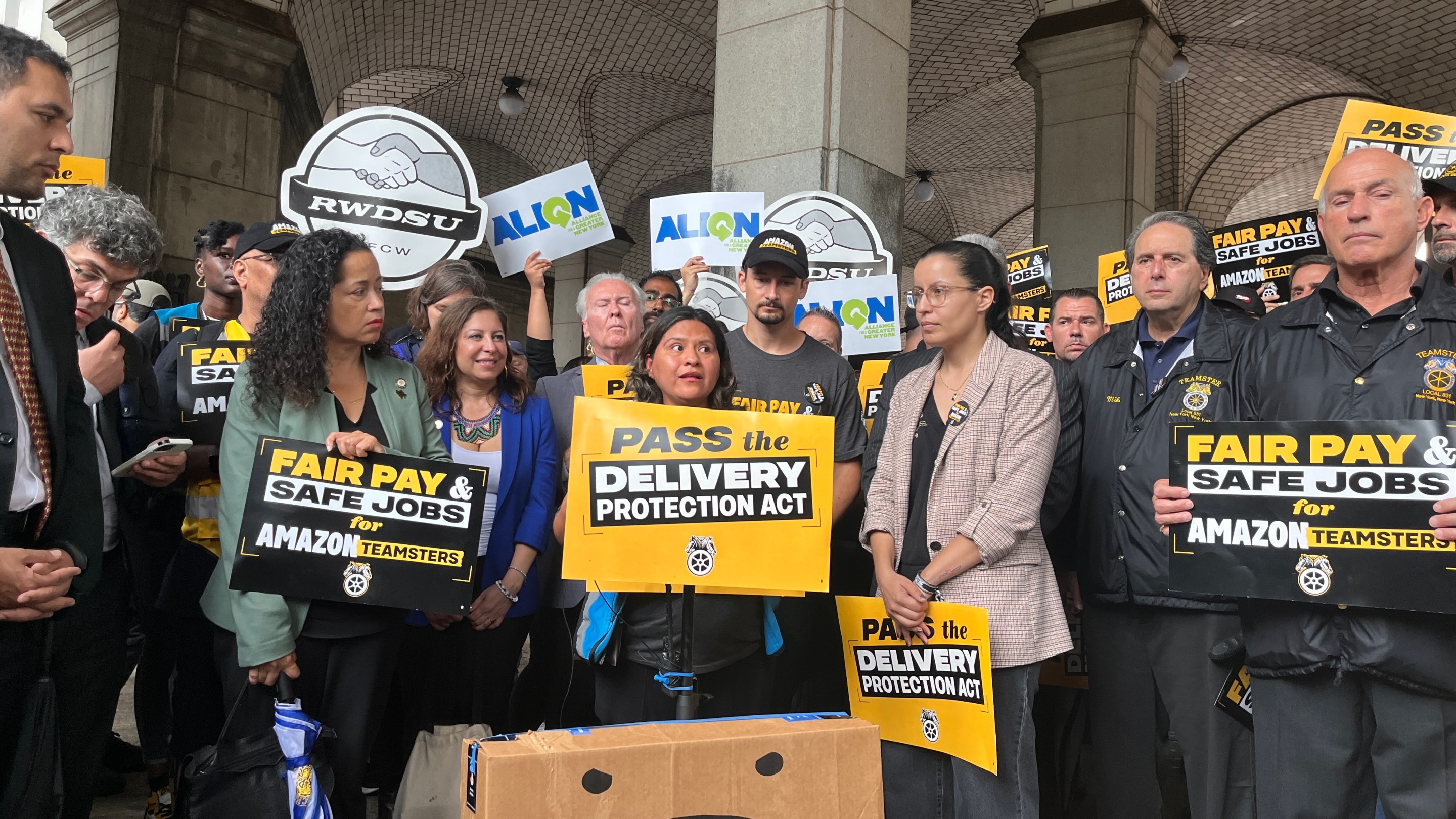A bill to force Amazon to directly hire the workers who deliver its packages in the Big Apple now has the support of a majority of City Council members.
The bill introduced last month by Council Member Tiffany Cabán (D-Astoria) would make Amazon responsible for incidents involving its delivery vehicles as well as the job security of its workers.
None of the employees on the street making deliveries for Amazon – wearing an Amazon uniform and driving an Amazon-branded vehicle – technically works for the company. Instead, most work for a Delivery Service Partner, or DSP, which leases Amazon-branded equipment and works out of warehouses on an exclusive basis with the online retail giant.
The confusing system allows Amazon to skirt responsibility for its massive delivery operations. DSPs pop up and close down constantly, repeatedly forcing delivery drivers out of work.
The bill's 34 co-sponsors — out of the Council's 51 members — span the political spectrum, from DSA Council Member Alexa Avilés of Sunset Park to right-wing Council Member Inna Vernikov, a MAGA Republican from Sheepshead Bay.
Cabán's bill would end the DSP model entirely by requiring all “last-mile” warehouses to directly employ their drivers. The current system effectively allows Amazon to ignore the union or just drop a DSP entirely, firing workers without cause.
“You could be a perfect driver and have never done anything wrong and lose your job because of something that's completely outside your control,” Brendan Radtke, a delivery driver who joined the Teamsters last year along with his co-workers at Amazon's DBK4 warehouse in Maspeth. "Amazon uses these DSPs to shield themselves from accountability to our union."
The bill would also mandate safety training, make Amazon directly responsible for driver behavior, and require "last-mile" delivery centers to be licensed with the city. Those rules would be enforced by the Department of Consumer and Worker Protection.

Mayor Adams's "City of Yes for Economic Opportunity" rezoning brought into the public eye how last-mile delivery centers, including Amazon's DSPs, deliver negative effects on the communities that surround them, such as increased pollution and traffic. Part of the final agreement for the sweeping rezoning aimed to boost the city's economy was a promise from City Hall to regulate these warehouses, but no such regulations have materialized. DCWP has said it doesn't have the requisite funding to enact and enforce new rules.
At the DBK4 warehouse in Maspeth, there can be from six to nine DSPs operating at one time, depending on the season, Radtke said. The model is meant to encourage high turnover, which puts inexperienced drivers on the road, he said.
“They prefer high turnover because they think that workers get lazier and expect more pay after a few years on the job,” he told Streetsblog. “There's a really low barrier to entry. I mean, they'll pretty much hire anyone, and there's very little training before you're on the road operating this huge vehicle.”
But Amazon told Streetsblog that in the past year it has seen a reduction in high-risk behaviors like speeding and distracted driving, which it says is from investments in new technology like artificial intelligence.
"Claims that Amazon's DSP program compromises street safety are simply false,” said company spokesperson Dannea DeLisser. "All drivers complete comprehensive safety training before making their first delivery, and our smart routing technology analyzes traffic patterns and road conditions to design safer routes. The data shows that through technological innovation and strong DSP partnerships, we're working toward making streets safer for everyone in the communities we serve."
Amazon also disputed the notion of churn-and-burn at DSPs, claiming that the average tenure of DSP owners is about five years and the percentage of voluntary exits from the program are in the single digits. (There is no way to independently verify that claim.)
It is common for Radtke's DSP to deliver between 80,000 and 120,000 packages per day, split between 80-120 drivers. But the mandated training consists of online videos, driving on a closed course with traffic cones, and shadowing another driver for a couple of days, he said.
“Nothing like driving in New York City,” Radtke explained. “There's definitely the pressure of needing to complete your route, and being told that you're not allowed to bring packages back at the end of the day, that you have to finish everything. I've heard people getting written up or losing days of work because of that. The most common form of punishment is they take a day, or more than one day of work away from you."
For Cabán, the bill is as much about making streets safer as much as it is about protecting workers.
“Convenience does not have to come at the cost of care for our city and our safety," Cabán told Streetsblog. "With a bipartisan supermajority in the Council, we can take on the biggest corporations in the world and win.”
The legislation has the support of the Teamsters, Amazon Labor Union, National Employment Law Project, The Alliance for a Greater New York, the Retail Workers Union, and Transportation Alternatives.
“As last-mile delivery continues to expand, we need to make sure that ... companies like Amazon are held accountable to our streets as workplaces. Last mile drivers deserve protections and training to keep them and other New Yorkers safe from the high rates of serious injuries that plague the delivery industry,” said Elizabeth Adams, deputy director of public affairs at the street safety group.






